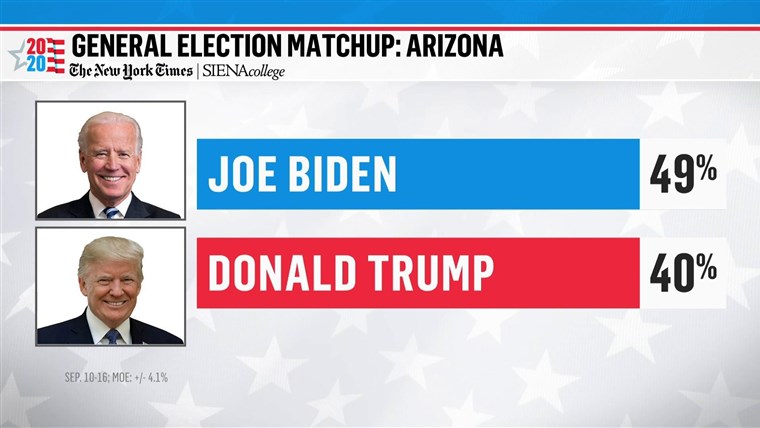LAS VEGAS — An exodus of Californians has accelerated Nevada’s move to the left, helping Democrats take control of state government for the first time in a generation and paving the way for a slate of progressive policies, according to political strategists and observers here.
Now, the hundreds of thousands of former Californians who’ve moved across state lines could be a boon for Kamala Harris, the senator representing their former home state, in the crucial Nevada Democratic caucuses next year.
Between 2008 and 2017, more than 450,000 people moved from California to Nevada, according to estimates from the U.S. Census Bureau, while less than 300,000 went the opposite direction — making the Golden State the top source of new residents to the Silver State. Many may have since moved elsewhere, and those who went back and forth in that time period would be double-counted. But it’s likely that many of the Democrats who’ve arrived here in recent years have voted for Harris in her campaigns for attorney general or U.S. senator — or at least are more likely to recognize her name.
“There’s no doubt it’s changing the state,” said Andres Ramirez, a Democratic strategist in Las Vegas who moved from California himself decades ago. “We have a very dynamic and aggressive outreach machine to try to get as many of those newcomers as possible to register to vote and participate.”
Californians are far from the only explanation for Democratic success here, observers note. The party has benefited from strong labor groups like the influential Culinary Union — which represents 60,000 workers at the hotels and casinos of the Vegas strip and elsewhere around the state — as well as a slate of candidates more moderate than their right-leaning GOP opponents.
But the net flow from the Golden State has swelled in recent years, as sky-high housing prices in the Bay Area and Southern California sent residents searching for drastically cheaper deals a few hours drive away in the expanding Reno or Las Vegas metropolitan areas. Nevada’s Latino, African-American and Asian-American populations have grown, while the white, non-Hispanic population has stayed mostly flat since 2010, helping it become one of just a handful of majority-minority states and the fastest-growing state in the country by percentage.
Deborah Chang, an entrepreneur from South San Francisco, bought a house in rural Douglas County after falling in love with the area while volunteering there for Hillary Clinton’s campaign in 2016. She and her wife have lived back and forth the past few years and are moving there full-time this week, excited to spend more time skiing and letting their dog run around in a bigger yard.

“We immediately joined our local Democratic group — it’s small but very active,” Chang said. Now she plans to get more involved for 2020, including supporting Harris, who she credits for early support of same-sex marriage.
Thanks in part to voters like Chang, Democrats swept all of the most crucial races in last year’s midterm elections, winning the governor’s office, both houses of the legislature, and their second U.S. Senate seat. They’re in control of all the levers of state government for the first time since 1992.
Already, the results have been palpable. In recent months, lawmakers raised the minimum wage, put in place higher green energy standards, guaranteed collective bargaining rights for state employees and enacted new gun control measures (some of which don’t go into effect until next year) — making the state a little more like its neighbor to the west.
In-migration from California is “definitely a factor” in the state’s blue turn, said Donna West, the chair of the Las Vegas-based Clark County Democratic Party, who used to oversee motorists exchanging their California licenses for Nevada ones as an administrator in the state DMV.
“People who move here from California often have different politics from your old-timer Nevadans,” added Marty McGarry, the first vice chair of the state Democratic party. A San Jose State University graduate, she moved from the Bay Area to Carson City in 2003.
The blue wins are part of a broader political realignment in the Trump era, with diverse Sun Belt states like Nevada, Arizona and even Texas seeing Democratic gains, while whiter Midwestern states like Ohio, Iowa, and Wisconsin are turning more Republican.
Of course, plenty of the California transplants to Nevada are Republicans, some fleeing a state they think has lurched too far to the left.
“Most of our new members are people who moved from California, and a lot of them say, ‘it’s nice to be able to say I’m a Republican without being made fun of,’” said Paul Strasser, the chair of the Carson City Republican Party.
Statewide, party voter registration switched from a Republican advantage of about 1,000 registered voters in July 2004 to a Democratic advantage of more than 70,000 in July 2019, according to Secretary of State data — although the fastest-growing group, like in California, is voters registered without party preference.
The state’s changing demographics will have an impact in next year’s key Democratic caucuses, the third contest of the presidential primary campaign.
To make it to California’s March 3 primary, Harris will have to hold her own in the first four early states — and her campaign is putting a special focus on the more diverse Nevada and South Carolina. Harris has visited Nevada eight times, more than any of the other top contenders in the race, according to a candidate tracker published by the Nevada Independent website.
On her trips, Harris has made a point to reach out to diverse communities, from a town hall in a Latino neighborhood that featured simultaneous Spanish translation headsets to an event with Asian-American leaders at a Vietnamese restaurant. She met last weekend with a black fraternity and sorority group that includes Harris’ sorority, Alpha Kappa Alpha.

Not every event has gone smoothly — Harris attracted controversy after attending services last weekend at a Las Vegas Baptist church led by a pastor who’s called being gay a sin. She told reporters Thursday she hadn’t known about the views of the pastor, Robert E. Fowler, Sr. Senators Cory Booker and Bernie Sanders had also appeared at the church.
Being from California has given Harris a strong foundation in some of the top issues for Democrats in both states, from immigration to labor rights to environmental protections. West said Harris seemed the most informed of the candidates she’d met so far (along with Washington Gov. Jay Inslee, another westerner) on the important local issue of Yucca Mountain, the long-delayed federal proposal to store nuclear waste in Nevada.
“She had a very in-depth knowledge of the issue,” West said. Harris had discussed the science with her and promised “‘we’re not going to just dump it in somebody’s backyard.’”
Harris has other advantages in the state. She’s close with Catherine Cortez Masto, Nevada’s senior senator. Both were elected in 2016 and previously served as attorney generals of their respective states. They also worked together on a national settlement with big banks in the wake of the foreclosure crisis, which hit both states hard.
Nevada strategists are impressed by Harris’ team, including advisors Emmy Ruiz, who led Barack Obama’s 2012 general election campaign and Hillary Clinton’s successful 2016 caucus campaign in the state, and Megan Jones, who worked for the powerful Nevada political operation of former Senate Majority Leader Harry Reid.
And in the weekends leading up to the Feb. 22 caucuses, Harris’ campaign will likely be able to bus hundreds of volunteers from the Bay Area and Los Angeles to Nevada’s population centers.
“The senator often says she sees Nevada as first cousins with California,” Ernie Apreza, Harris’ state director and a former Obama field organizer here, said in an interview.
Still, she has work to do to improve her standing, as the few Democratic polls conducted in the state so far put her behind former Vice President Joe Biden, Sen. Elizabeth Warren and Sanders.
At a town hall at an elementary school in suburban Henderson last Saturday, the line of people waiting to get inside snaked around the parking lot in 109-degree heat. Attendees packed into the cafeteria on folding chairs to hear Harris give an impassioned call for gun control, a few hours after news broke of the El Paso mass shooting.
Some of the people in the crowd had been Harris’ constituents not too long ago. Rob Shives, who wore a San Francisco Giants t-shirt, walked away with a grin on his face after shaking the candidate’s hand. He moved to Henderson, not far from Las Vegas, six months ago after living in the Bay Area for 25 years. He said he’s a longtime fan.
“I’ve been supporting her since she was running for district attorney,” he said, calling Harris “inspiring” and vowing to volunteer for her caucus campaign.
Shives built his own house here for a fraction of the cost of his condo in Palo Alto, and enjoys the more laid-back lifestyle in Henderson.
“I thought I had the bright idea to move here, but there’s a lot of people here who used to live in the Bay Area,” he marveled. “And now we’re even going to get the Raiders.”

